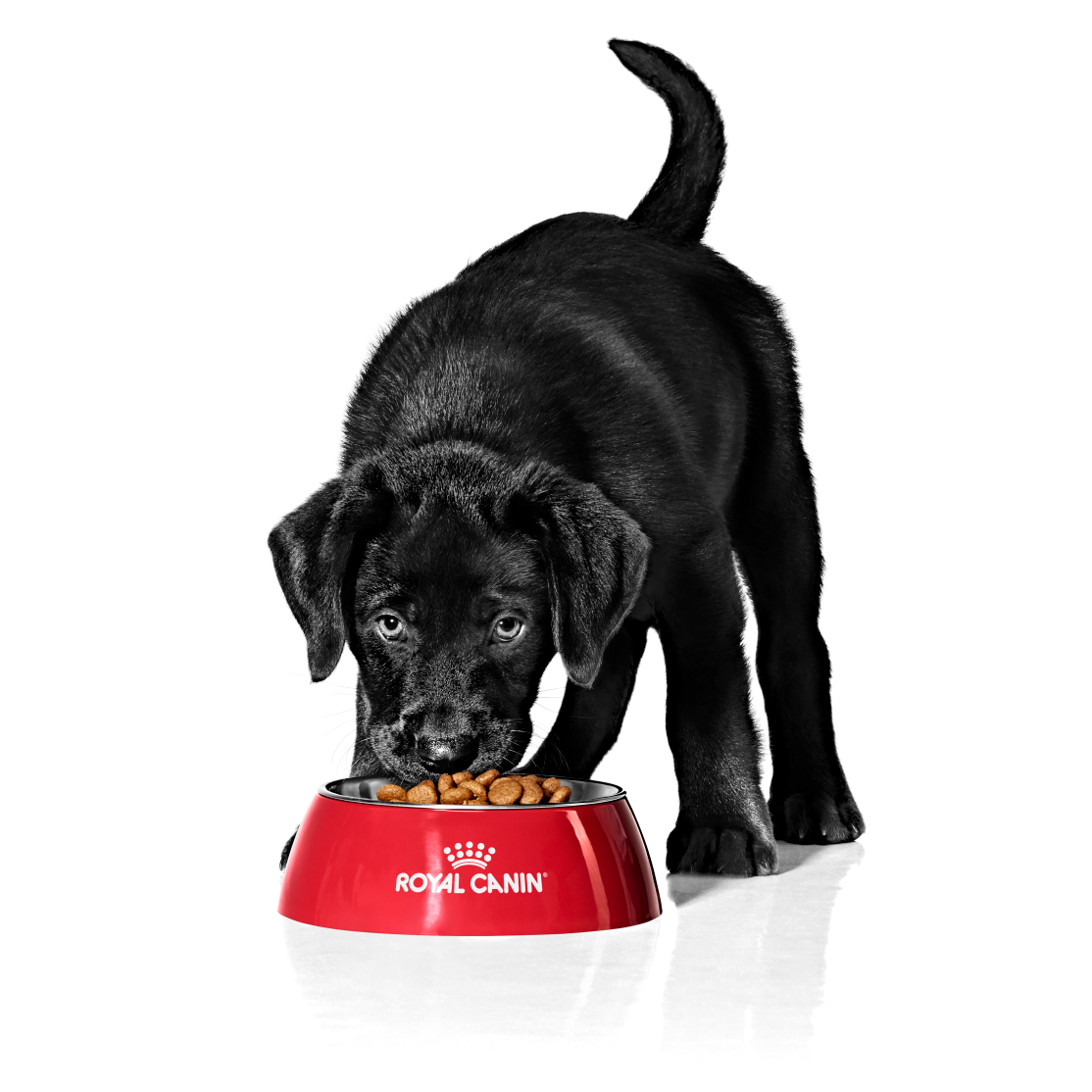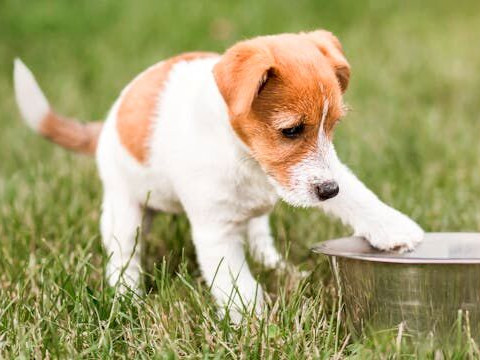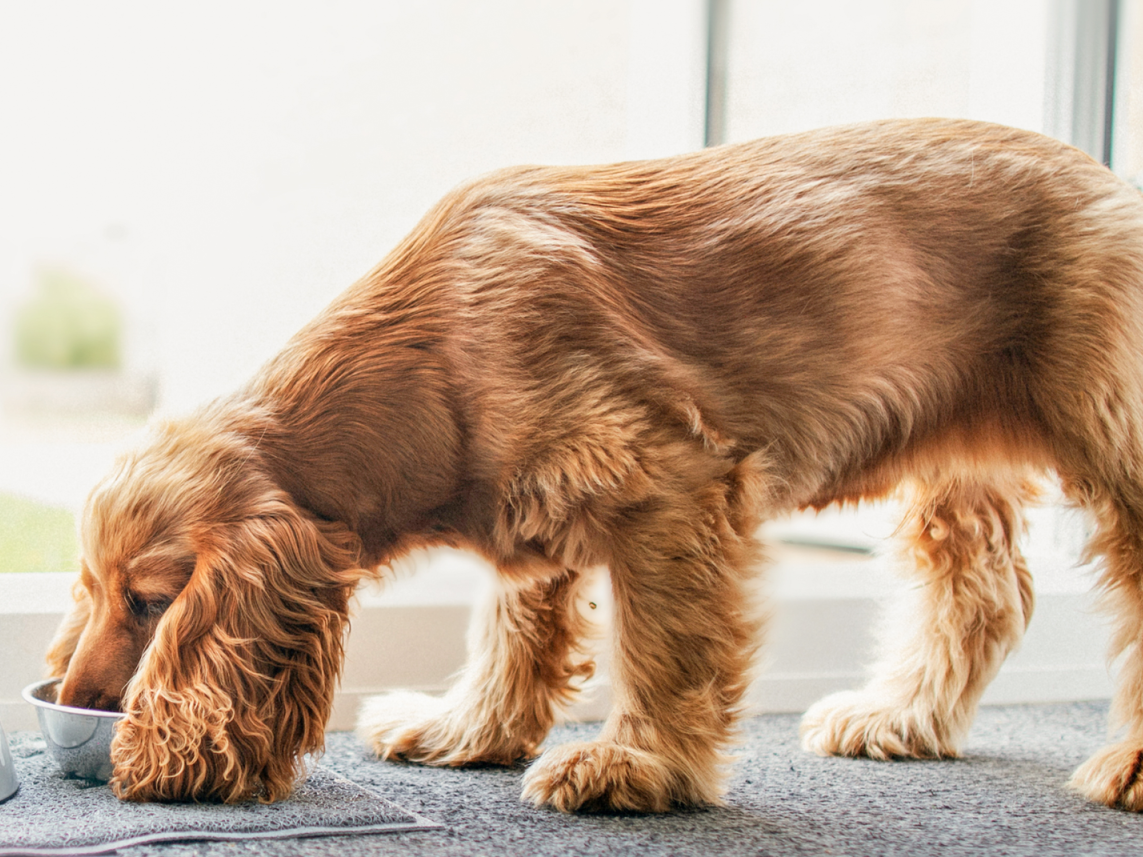
Puppy feeding and nutrition guide
The early months of your puppy’s life are an exciting and important time—not just for your puppy but for their new owner too. As they pass their first birthday and move towards their second, by which point all breeds will have reached adulthood, your puppy is still facing huge changes, growth and new experiences. Bringing home your new pet involves plenty of research. Feeding is an important part of that. This puppy feeding guide will give you the information you need to make the best choices for your puppy’s diet in their crucial first months, helping to set them up for a long and healthy life.
Why your puppy’s diet is so important
Puppies grow rapidly, their little bodies quickly catching up with the outsized ears and paws of the early months. Inside, their digestive and immune systems are developing and their nutritional needs are different to those of adult dogs. What your puppy eats in their first months will lay the foundations for your puppy’s healthy future. Choosing a food specially developed for puppies will support their development as they explore, play and socialise.

How do puppies’ needs differ from those of adult dogs?
It’s important to remember that the foods puppies can eat are not the same foods that are right for adult dogs (or humans). As they grow, play and learn, puppies need the right nutritional support for the development taking place inside. Their food needs to be more energy dense than adult dogs’ food to support their rapid growth. They also need exactly the right balance of calcium and phosphorus, to support their bone development. Puppies cannot regulate their own food intake so it’s up to you to control their portions. Eating too much and growing too fast puts puppies at risk of obesity and a whole host of related diseases that could affect their quality of life from bone and joint issues to digestive disorders.
How do your puppy’s healthy development needs change?
A puppy’s dietary needs evolve as they move through their first year towards adulthood, a process that takes longer the bigger the breed. A large dog such as a Labrador Retriever will reach adulthood at around 15 months, while for a small breed such as a Jack Russell Terrier it is around ten months.
To make sure that your puppy’s diet supports their healthy growth and contains all the key nutrients they need, refer to puppy feeding guidelines by weight and age to help you make the right choices. And check with your vet if you aren’t sure.
Birth to 1 month
Puppies are born small and vulnerable, going through big changes in their first few weeks, as they open their eyes and take their first steps. At one month old, puppies can start to be gradually weaned from their mother’s milk and begin eating solid food, the start of their journey towards independence. In their early weeks, puppies need the right balance of nutrients to build up their immunity and promote good bacteria in their delicate digestive system. This healthy foundation sets them up for the growth and changes to come.
2 to 4 months
At around eight weeks, puppies’ nutritional needs change. When your puppy is between two and four months old, they need carefully regulated amounts of calcium, phosphorus and vitamin D that will support their developing skeleton so it’s important to make sure they are eating the right quantity for their breed and size. When your puppy arrives in their new home, try to give them the same food they were eating before and only change their diet gradually. This is an exciting but potentially stressful time for them and familiar food will contribute to a smooth transition.
4 to 7 months
Between four and seven months, puppies start to build up their body mass—stick with their puppy food, they still need it to provide the right amounts of high-quality, easy-to-digest protein. Deficiencies can cause problems, but so can overfeeding: growing too fast can affect the development of their bones, muscles and even brains. Make sure you feed your puppy the correct amount for their breed and age (it’s always on your puppy food packaging), talk to your vet if you’re not sure.
10 months to adulthood
As puppies approach adulthood (the exact age depends on their size and breed), they still need extra nutritional support for their joints. This is especially the case for larger breeds as they build up their muscles, putting extra pressure on their skeletons. You’ll need to monitor your puppy’s growth and adapt the amount of puppy food they eat accordingly. Refer to a puppy feeding chart or ask your vet if you’re not sure how much they should be eating.
How much should you feed your puppy?
That all depends on your puppy’s weight and their expected adult size. A large breed puppy will need more than a small one, so refer to the chart showing how much to feed your puppy by weight or age. If in doubt, ask your vet for advice adapted to your dog—even within the same breed, every puppy is unique. And don’t worry if they don’t always finish their bowl.
How a puppy’s feeding schedule changes
As they grow, your puppy’s feeding schedule will change. Regardless of the breed or size, during weaning, meals should be split into four portions. Small breed dogs then need three meals a day until they are four months old, and two meals a day between four and ten months. Larger breeds should have three meals a day until they are six months old and two meals a day between six months and a year. It's worth remembering that dogs don’t need variety in their diet in the way humans do. And they thrive on a predictable food routine, and that can begin from their early months: same food, same bowl, same times—every day.
What is mixed feeding for puppies?
Both wet food and dry kibble have their advantages. Opting for mixed feeding, or a combination, can give your puppy the best of both worlds. The increased moisture content of wet food contributes to meeting your dog’s water needs, helping support their kidney function. Dry food, meanwhile, keeps for longer and contains a more concentrated supply of essential nutrients. The kibble acts as a canine toothbrush, helping keep your dog’s teeth healthy.
How much should your puppy drink?
Your puppy’s water needs will vary according to whether they eat dry or wet food or a mix of both, how active they are, their breed and size and the temperature of their surroundings. Just make sure your puppy always has access to fresh water and change the water and clean the bowl frequently to prevent parasites from breeding in it. A ceramic, glass or stainless steel bowl is best. Plastic can have an off-putting odour for sensitive canine noses. If you can, leave several bowls in calm places throughout your home so your puppy can always find a drink.
Getting into good feeding habits
No matter how tempting it is (and how imploring those big eyes seem) you won’t be doing your puppy any favours by sharing your food with them.
While humans can eat everything, your canine companion cannot. Many human foods can actively harm your puppy if they eat them. Nutrition aside, it’s best to avoid feeding puppies scraps from the table anyway. Bad habits like begging are quick to form and harder to undo.
The science behind ROYAL CANINⓇ puppy nutrition
We specialise in health through nutrition, tailored to meet the unique needs of every puppy. For us, feeding your puppy isn’t just about providing energy—it’s about supporting them too. We provide an optimal balance of nutrients to help build and maintain the body’s cells, contribute to the fight against disease and help avoid digestive, joint and age-related issues.
Puppy feeding FAQs
When your puppy is ready to make the switch from puppy to adult food will depend on their breed and size—dogs are categorised into five different size groups. A `toy’ dog such as a Chihuahua will reach their adult weight (around 20 times their birth weight) at around 8-10 months. Meanwhile, a Great Dane, classified as a ‘giant’ breed, will not reach adulthood until between 18 and 24 months, but will by then have grown to an impressive 100 times their birth weight.
Consult puppy feeding guidelines to get a better idea of when the transition to adult food should start. Your vet can also advise you.
They should not—puppies need specially developed food that contains all the nutrients and energy needed to support their growth.
Puppies shouldn’t be eating human foods anyway, but some can be particularly harmful. It’s extremely important to avoid giving them chocolate, artificial sweeteners, grapes, garlic, onions, dairy products, nuts and fatty foods. The best way to do that is by sticking to a specially developed puppy food.
Dogs started out as carnivores (albeit ones that, in the wild, would have consumed some vegetable matter via their prey) and even if their diet has evolved—we now consider dogs to be omnivores—it still needs to provide a precise balance of energy, protein, amino acids and vitamins to maintain their health. That’s why it is best to give your dog a specially formulated food appropriate for their breed, size and stage of life.
Dogs may be man’s best friend but they shouldn’t share the same eating habits. It’s best to feed them a food for dogs, whether wet or dry, that has been specially developed to meet their nutritional needs. Avoid feeding them outside fixed mealtimes and rewarding them with extra treats or leftovers from human meals to help prevent obesity and avoid bad habits like begging at the table.
Your puppy’s arrival in their new home is an exciting moment for everyone. Getting their food right from the start can help ease their transition into their new environment and will help ensure your lives together get off to a smooth and stress-free start. Best of all, ensuring your puppy gets the optimal nutrition adapted to their stage of life from their earliest weeks will set them up for a healthy, energetic life with you.
Related articles

Mixed feeding your dog

When does my puppy become an adult dog

Find the right product
Answer questions about your pet
Answer questions about your pet
Unlock your pet’s health follow up